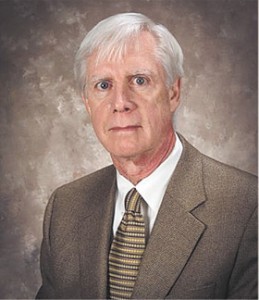
I recently was required to take an online course alerting me to signs that my senior clients could be suffering from early stages of dementia or Alzheimer’s disease. An article from Fiduciary Trust Company outlined steps to take in a proactive sense to deal with such possibilities. Any action you might consider as a result of reading the following comments should be thoroughly discussed with your attorney, tax and financial advisors. Initially, let us agree that it is not unusual for us to have moments when we do not remember every detail, and normal aging does not necessarily include serious mental decline. However, dementia is more than that, including a decline in memory along with a decrease in general thinking capabilities and ability to function in the everyday environment. Alzheimer’s is the most common form of dementia, but not the only one. Alzheimer’s affects an estimated 11% of those over 65, and one-third of those over age 85. When working with a family member or friend that is afflicted, there are certain steps that need to be taken. First, you must recognize the condition. Dementia progression can be broken down into three stages: mild, moderate and advanced cognitive impairment. The first stage—mild—may include a decreasing ability to remember new information, to include handling of finances and remembering names. At this stage, an individual maintains legal capacity and can set out plans for future care.
In the moderate stage, a person may need a caregiver for assistance and becomes more withdrawn, with the capacity to make legal decisions questionable. In the advanced stage, one may be bedridden or wheelchair dependent, struggling with speech and personality changes.
In the ideal situation, a family will begin planning while the afflicted family member can be included in the process. Among the topics discussed can be who the caregivers will be and where the care will be received. If a family member is to be the initial caregiver, should compensation be involved? Also, when do responsibilities shift from the family to a professional caregiver? This is important and all family members should be aware of the physical and emotional strain of being a primary caregiver. A related concern is care for the spouse of the patient; living arrangements, financial support, if necessary, and remaining part of a community of caring, loving friends. One other consideration is funding the care. The cost is significant and not covered by Medicare after 100 days in a nursing home.
Gathering an inventory of assets, liabilities, insurance policies, income sources, key contacts and digital assets is especially important. This would include checking and savings accounts, investment assets, business interests, recurring bills, names of bankers, attorneys, tax and financial advisors, doctors and other key contacts. With this info, you will have some idea of the assets available to fund future care. Also, estate planning documents should be reviewed with an eye toward future loss of legal capacity. Basic documents may include a health care proxy, HIPAA authorization, a durable power of attorney and a will. All these may require that an attorney be engaged, so ask for referrals from trusted advisors. Also, include a review of named beneficiaries on insurance policies and retirement plans, especially if there has been a divorce. Perhaps a plan for the funeral could be on the agenda because it is easy to forget a final farewell.
It is important to realize that the preparation suggested above is based on a team approach. We will need the support of family, friends and trusted, competent advisors to guide us through the process. Even more important, we will need the touch of God in our work. The “Pilgrim’s Hymn” provides guidance: “Even before we call on Your name to ask You, O God, when we seek for the words to glorify You, You hear our prayer. Unceasing love, O unceasing love surpassing all we know, Glory to the Father, and to the Son, and to the Holy Spirit. Even with darkness sealing us in, we breathe your name, and through all the days that follow so fast, we trust in You; endless Your Grace, O endless Your Grace, beyond all mortal dream. Both now and forever, and unto all ages and ages, Amen.” From Psalm 66: “Blessed be God, who has not rejected my prayer, nor withheld his love from me.”
Although this information has been gathered from sources believed to be reliable, it cannot be guaranteed. This material is intended for informational purposes only and should not be construed or acted upon as individualized tax, legal or investment advice. FSC Securities Corporation does not offer tax or legal advice. The views expressed are not necessarily the opinion of FSC Securities Corporation. Financial Solutions Group is a marketing name. Financial Solutions Group is located at 128 Versailles Blvd, Alexandria, Louisiana 71301. We can be reached at (318) 448-3201. Securities, insurance and advisory services offered through FSC Securities Corporation, member FINRA/SIPC.









